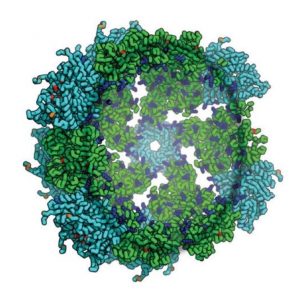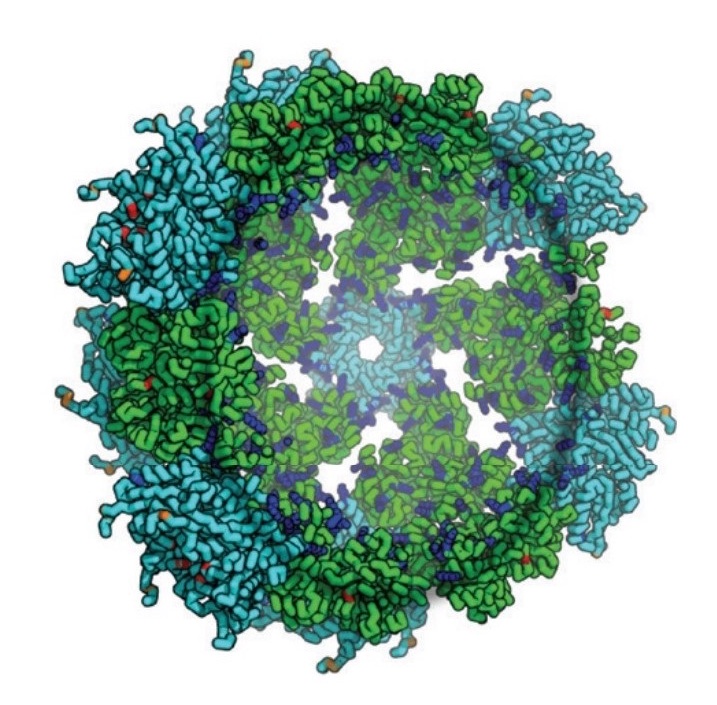A report this week describes the first synthetic protein assemblies — dubbed synthetic nucleocapsids — that encapsulate their own genome and evolve in complex environments. The lead authors were Gabe Butterfield and Marc Lajoie.

Synthetic nucleocapsids are built to resemble viral capsids and could be used in future to deliver therapeutics to specific cells and tissues. These icosahedral protein assemblies are based off of previously reported results from the Institute for Protein Design.
“Targeted drug delivery is a major unsolved need in medicine,” Lajoie noted, “Currently, researchers are using viruses, which are effective, but difficult to engineer, or they are using polymeric nanoparticles, which are engineerable, but less effective at targeted delivery.”

“We designed synthetic nucleocapsids from scratch based on two completely unrelated proteins,” Lajoie said. “This is exciting because we were able to design functions that are essential for life without having to use existing cells as a template.”
Unlike living viruses, these genetic cargo-carriers can’t copy themselves to reproduce, and Butterfield added “still, they rival viruses in genome packaging efficiency, and are much simpler and easier to engineer.”
Future directions of this work will continue the combined design-and-evolve strategy to optimize the function of synthetic nucleocapsids in complex settings, such as those in live tissues. “We were surprised at how efficiently evolution solved our problems so far, and we hope that this will continue as we pursue our next goals: delivering therapeutic cargos to specific cells in animals,” Butterfield said.
The work was funded by the Howard Hughes Medical Institute, the Bill and Melinda Gates Foundation, the Defense Advances Research Projects Agency (DARPA), the National Institutes of Health, the National Science Foundation, the Washington Research Foundation and the Cancer Research Institute.
Evolution of a designed protein assembly encapsulating its own RNA genome | PDF
Other researchers on the study were Heather H. Gustafson, Drew L. Sellers, Una Nattermann, Daniel Ellis, Jacob B. Bale, Sharon Ke, Garreck H. Lenz, Angelica Yehdego, and Rashmi Ravichandran.
